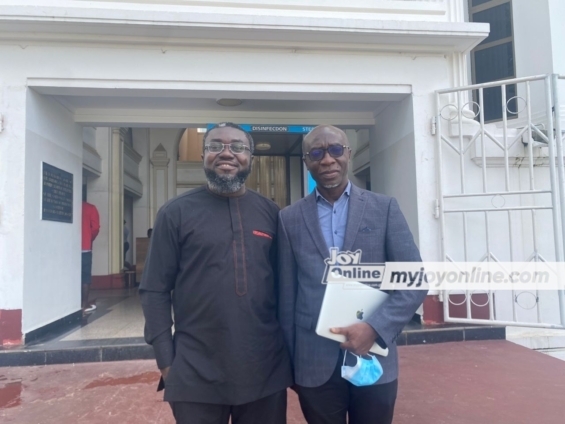The Supreme Court has in a unanimous decision declared as unconstitutional the law that allowed government to impose restrictions during the Covid-19 pandemic.
Parliament in 2020 passed the Imposition of Restrictions Act to allow restrictions provided for in Article 21 of Ghana’s 1992 constitution to be imposed.
The said constitutional provisions allow restrictions to be put in place in the interest of defence, public safety, public health or the running of essential services, on the movement or residence within Ghana of any person or persons generally, or any class of persons.
This law allowed government to issue various instruments while health authorities managed the Covid-19 pandemic.
This is the law that allowed the President to restrict public gatherings, shut down schools, and impose measures to guide religious gatherings among others.
Law Professor and Human Rights advocate Kwadwo Appiagyei-Atua along with eight others dragged government to the Supreme Court contending the said law was unconstitutional.
He contended it unlawfully empowered the President to unilaterally suspend fundamental human rights and freedoms in the whole or a part of Ghana, excluding the special role of the Chief Justice and the Superior Court of Judicature in managing or regulating the suspension of fundamental human rights and freedoms in the whole or a part of Ghana; and excluding the role of Parliament in managing or regulating the suspension of fundamental human rights and freedoms in the whole or a part of Ghana.
A seven-member panel presided over by Justice Jones Dotse agreed with this view.
The court ruled that the Imposition of Restrictions Act is inconsistent with the Constitution.
He, therefore, announced that the said law is struck down as unconstitutional, null and void. The court’s full reasons will be made available on June 7.
The case was heard by Justices Jones Dotse, Nene Amegatcher, Nii Ashie Kotey, Lovelace Johnson, Amadu Tanko, Prof Henrietta Mensah Bonsu and Emmanuel Kulendi.
Latest Stories
-
Africa Development Council urges ECOWAS action amid Togo’s constitutional crisis
3 hours -
Situate power sector challenges within the context of the 4th Republic – Jantuah
3 hours -
Empowering Youth through IT Education: IT For Youth Ghana College leads the way
3 hours -
Trump criminal case: Full 12-person jury seated in Manhattan
4 hours -
Israel Gaza: US again warns against Rafah offensive
4 hours -
Man arrested in Poland over alleged Russia plot to kill Zelensky
4 hours -
Over 100 arrested as US college Gaza protest cleared
4 hours -
Justmoh Construction begins work on dualization of Takoradi-Agona Nkwanta road
4 hours -
MGL visits Dumor family following passing of Mawuena Trebarh
4 hours -
In Pursuit of Peace and Unity: Interfaith Leaders Promote Dialogue – Chief Doli-Wura to Africa Union
4 hours -
TEWU raises concern over quality of food served in SHS
5 hours -
Ghanaian students gear up for Robotics World Championship
6 hours -
Political interference makes public sector managers appear incompetent – Dr Manteaw
6 hours -
Police arrest truck driver alleged to have caused train crash
6 hours -
CAF Confederation Cup: Dreams FC depart to Cairo ahead of semis first leg against Zamalek
6 hours

